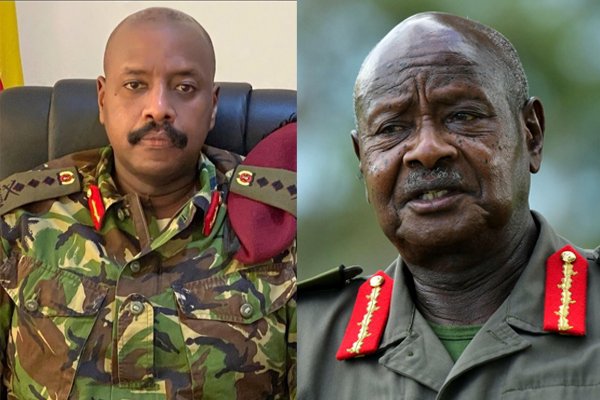Yoweri Museveni’s son, Muhoozi Kainerugaba, recently made headlines for his controversial tweet in which he pledged to send Ugandan troops to defend Moscow in the event of an “imperialist” threat. The tweet came amidst escalating tensions between Russia and Ukraine, with the West urging Moscow to withdraw its troops from Ukraine.
Kainerugaba’s tweet, in which he also criticized “useless pro-Ukrainian propaganda,” drew widespread criticism and ridicule. Many people questioned the logic behind Uganda’s involvement in a potential conflict between Russia and Ukraine, given the country’s geographical distance from the region.
This is not the first time that Kainerugaba has made headlines for his controversial statements. In early October, he had tweeted a threat to invade Kenya, which drew sharp criticism from Kenyan officials. Following this incident, his father, President Museveni, declared that his son would no longer tweet about the country’s affairs.
Despite the backlash, Kainerugaba remains a staunch supporter of Russian President Vladimir Putin. During a visit by Russian Foreign Minister Sergei Lavrov to Africa in July, Kainerugaba had expressed his admiration for Russia and its leader, saying, “How can we be against someone who has never hurt us?”
Observers have long considered Kainerugaba a likely successor to his father, who has been in power since 1986. Kainerugaba is a high-ranking military official and has been credited with playing a key role in defeating the Lord’s Resistance Army, a rebel group that has been active in Uganda and neighbouring countries for decades.
In addition to his military role, Kainerugaba has also been expanding his media presence. He recently announced the creation of a television and radio channel bearing his brand, “MK.” It remains to be seen how successful this venture will be, but it is clear that Kainerugaba is keen to establish himself as a major player in Uganda’s media landscape.
Despite his controversial statements and actions, Kainerugaba remains popular among many Ugandans, particularly those who support his father’s ruling party, the National Resistance Movement. His candidacy for the 2026 presidential election has been widely anticipated, and if he does run, he is likely to be a formidable contender.
While Kainerugaba’s tweet about defending Moscow may have been ill-advised and poorly received, it is indicative of his strong support for Russia and its leader, Vladimir Putin. It also highlights the complex web of geopolitical alliances and rivalries that shape international relations. As Uganda continues to navigate its place in this ever-changing landscape, it remains to be seen what role Kainerugaba will play in the country’s future.

